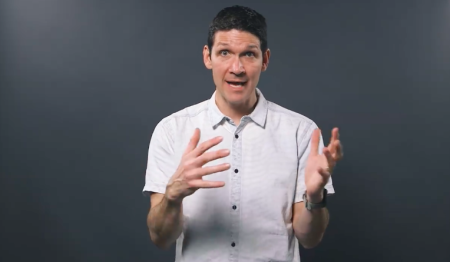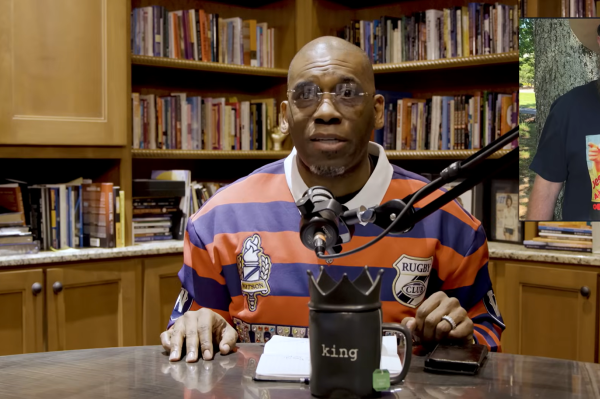Matt Chandler: Many Christians are 'ill-prepared theologically to understand suffering'

Matt Chandler, lead pastor of The Village Church in Flower Mound, Texas, has identified misconceptions many Christians have when it comes to suffering and shared how believers can live in joy when times of sorrow come.
In a recent interview with The Gospel Coalition, Chandler said many Christians are “ill-prepared theologically to understand suffering.”
“The errors tend to be, people have an over-realized eschatology or an under-realized eschatology,” he explained. “And when you err in either one of those directions, it actually adds a greater burden to the suffering itself.”
Although well-meaning, those who err on the side of an over-realized eschatology tend to cherry-pick Bible verses and say things that “just aren’t true,” Chandler said.
“We don’t understand that the Bible is a single story and not a bunch of stories,” he said. “And so when you pull two sentences out and try to form a doctrine around it or form a theological idea around it, then you’re more than likely gonna do greater harm than good.”
“When you get outside of that story and you cherry-pick verses, you can really create whatever you think people want to hear,” Chandler continued. “And I think well-meaning brothers and sisters ... in that really dark moment, the impulse is, ‘let me bring hope,’ when really you should bring presence. Instead, we’ve got these old taglines and fake promises that might happen: ‘A breakthrough might happen. God might heal.'”
Over-realized eschatology can be “so devastating,” however, because it “doesn’t leave any space for someone to die, or for someone to get cancer, and then ultimately die of that cancer without putting a weight on them that the word of God does not put on them,” Chandler stressed.
Other Christians err on the side of under-realized eschatology and say things that are “incomplete,” the pastor said.
“With under-realized eschatology, all you’ve got is the will of God,” the speaker and author said. “So ‘whatever the will of God is, that’s what’s gonna happen. Don’t even worry about it. Just ride it out.’”
This mentality, Chandler contended, does “great harm to people who suffer and who want to be healed" and indicates that the desire for healing is "somehow ungodly.”
“We certainly don’t see David praying like that in the Psalms. We certainly don’t see Paul praying like that in the New Testament,” he said. “I mean, three times he’s pleading with God, “Take this thorn from me. Take this thorn from me.” And Paul is expectant until he hears from the Lord, ‘No, my strength is going to be enough.’ But notice that Paul contents three times. And he doesn’t seem to be embarrassed or feel like he needs to repent of the fact that he’s perplexed, but not crushed.”
“I want us to believe together. I want us to ask for the gift of faith while we’re praying and expect God to heal while always having our hands wide open, and believing that God is sovereign and good and He can be trusted with this outcome,” Chandler declared.
The pastor is no stranger to suffering: On Thanksgiving Day in 2009, he collapsed from a malignant brain tumor and was given two to three years to live. Despite that diagnosis, he is today cancer-free and shares his experience of suffering in his new book,Joy in the Sorrow: How a Thriving Church (and Its Pastor) Learned to Suffer Well.
Based on his personal and pastoral experience with suffering, Chandler said he wanted to explain to others "what it looked like to live in a fallen world with a joy, that God is sovereign, and that He can be trusted, and that difficult days are coming for us, that nobody gets out of this life unscathed."
Christians, Chandler said, must understand that they are not under wrath but under the mercy of God.
“So under mercy and not under wrath, suffering then is used according to the Bible, as a purifier, as something that draws us near to the Lord and has us understand that He is drawing near to us,” Chandler explained. “It is used to mature and build ... is not punishment for the Christian.”
“When we talk about suffering, what I want to do is have a doctrinal conversation,” he added. “I want to talk about what the Bible says ... some of what He is up to is in helping you mature, helping you see, helping you grow, and creating a new steadfastness.”
Evil and suffering, he added, are even “more of a problem” for the secular world, because Christians have answers “that at least fit into a worldview that acknowledges the world is broken, and there is hope in that brokenness."
“It doesn’t mean it’s always gonna go easy. It doesn’t mean we’re always gonna understand, but there is a hope that we possess,” he concluded.
In a previous interview with The Christian Post, singer/songwriter Ellie Holcombe stressed the need for the church to become “comfortable” with the reality of suffering, doubt, and pain. God has a “long leash when it comes to suffering and patience as we walk through the valley of the shadow of death,” she said.
“We need to hear from the pulpit that it’s OK not to be OK,” she said. “I think so often all that’s presented in both sermons and worship music is, the Gospel is about being good and loving God and other people. And that’s all well and good, but it’s not the full Gospel.”
“God isn't far away from our pain; He understands our sorrow and suffering. We can come to Him because of what Jesus did with all of it,” she said. “Just because you're suffering doesn't mean that the Gospel doesn't apply to that.”
Naturally afraid of pain, humans “want to skip over the hard things,” Holcomb said, but often, it’s “in entering those broken places that we see the power of the Gospel.”
“If we skip over from Jesus coming to the cross and Him being alive just to the Resurrection Day, you actually miss the power of the story of the Gospel,” she said. “Culturally, we have a hard time being vulnerable and sharing our weakness, but that is so central to Christianity.”
Modern hymnwriter Matt Boswell told CP that one way to explore suffering is through songs — yet many modern-day worship songs don’t allow “space to wrestle with doubt or sorrow and suffering.”
“We just haven't learned to lament in our singing and we haven't learned to wrestle with doubts,” he said. “When the back cover of the hymnal is taken away, we start to just kind of sing whatever we want and we're, we're prone to run away from those things cause they're not fun to sing, but they're necessary for Christians to sing.”
“We have this propensity in Western evangelicalism to get bored with our faith, whereas in the Eastern and in the persecuted church, they're clinging to it,” he added. “Songs are one way we help people cling to what they believe and to understand what they believe.”





















